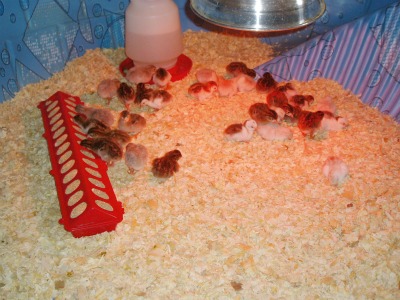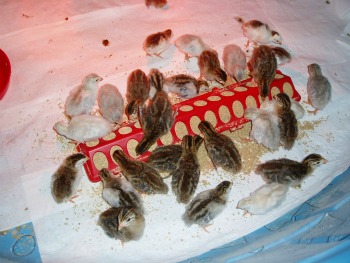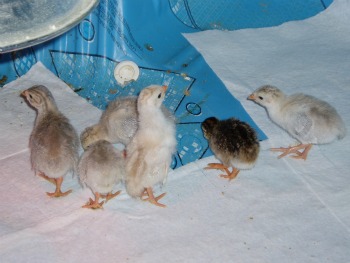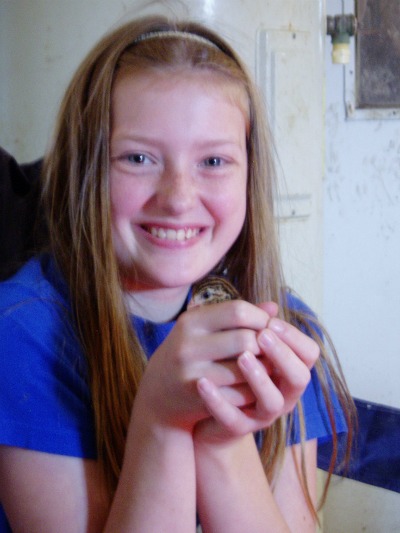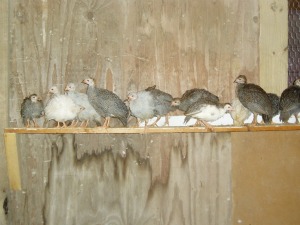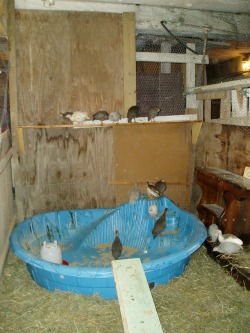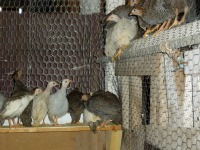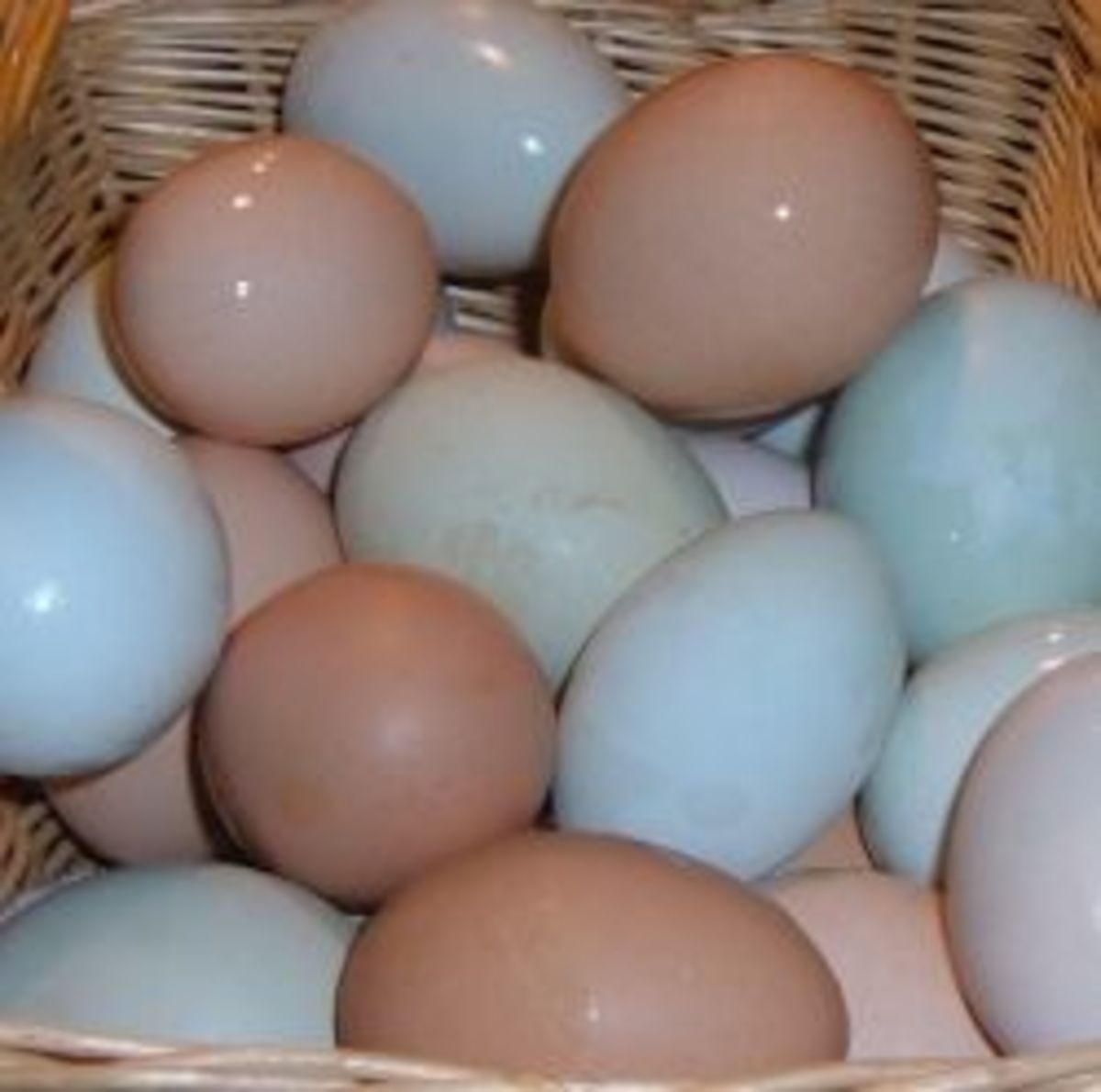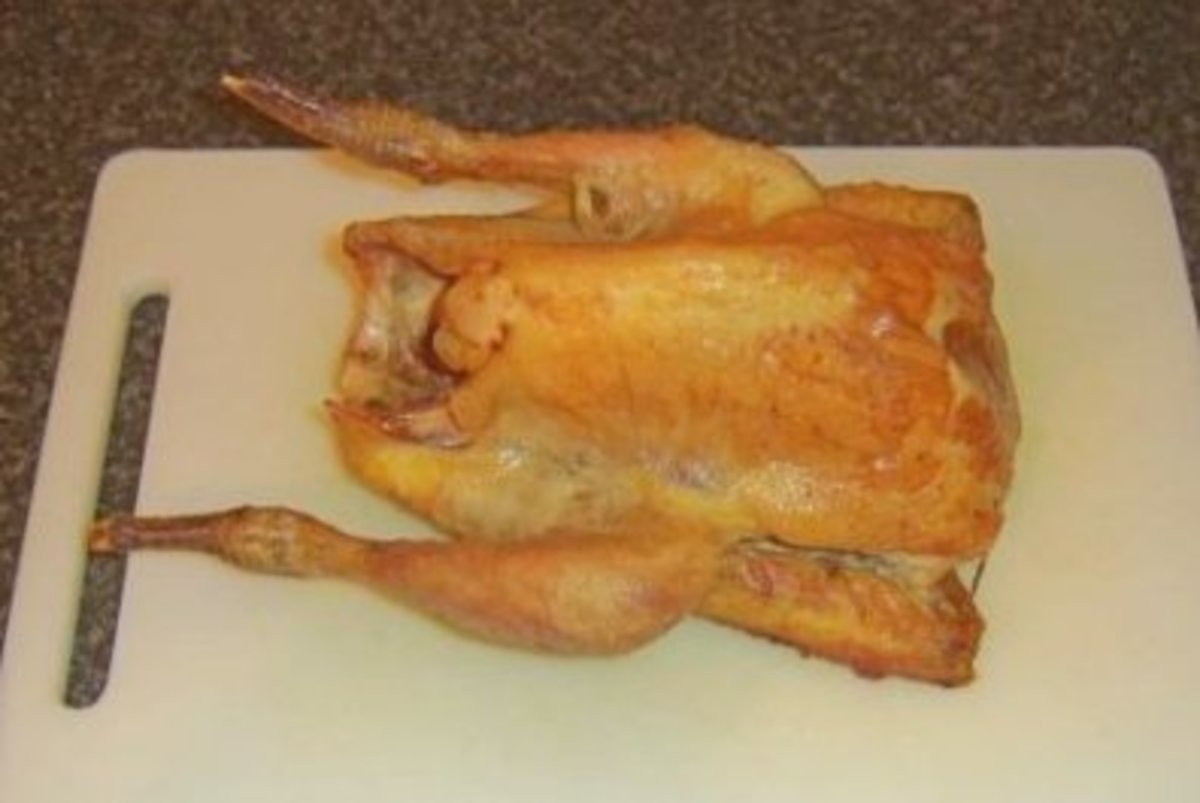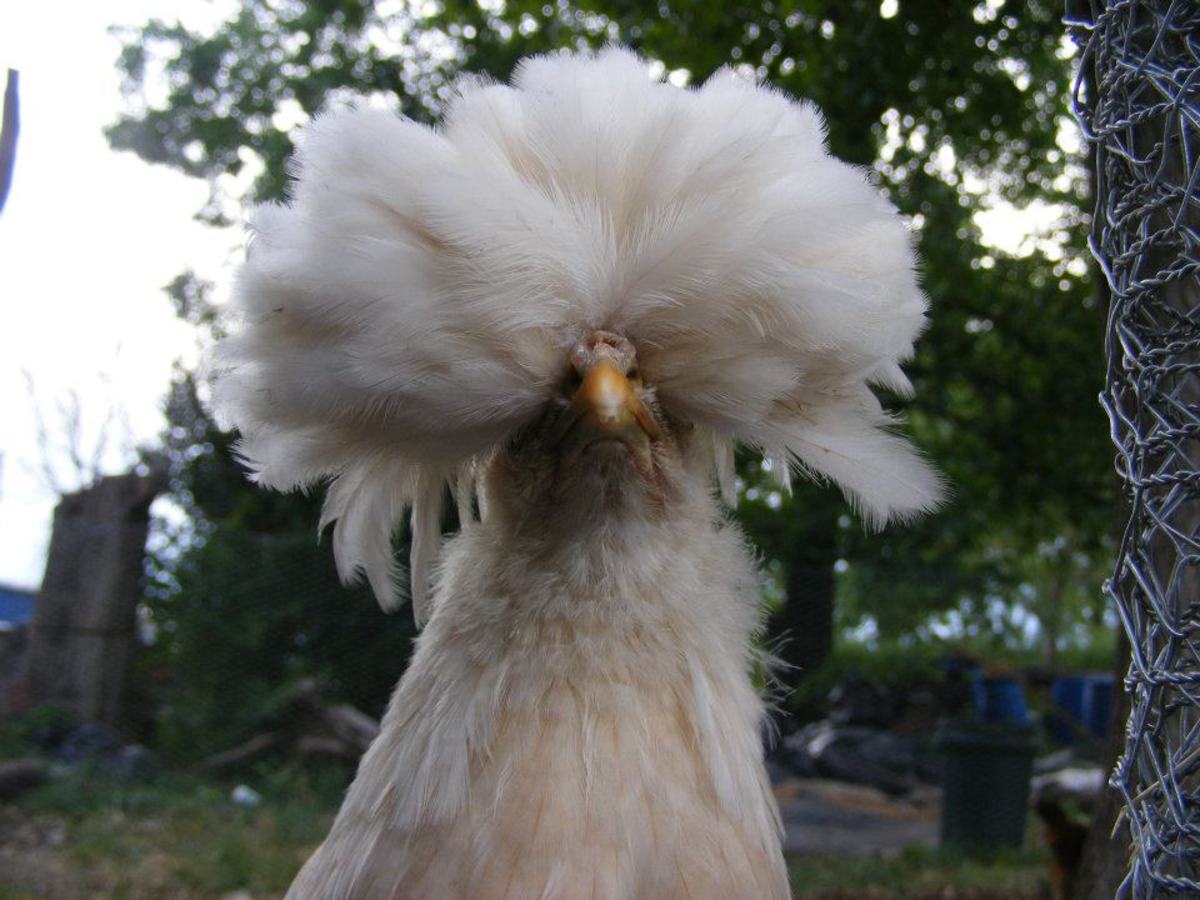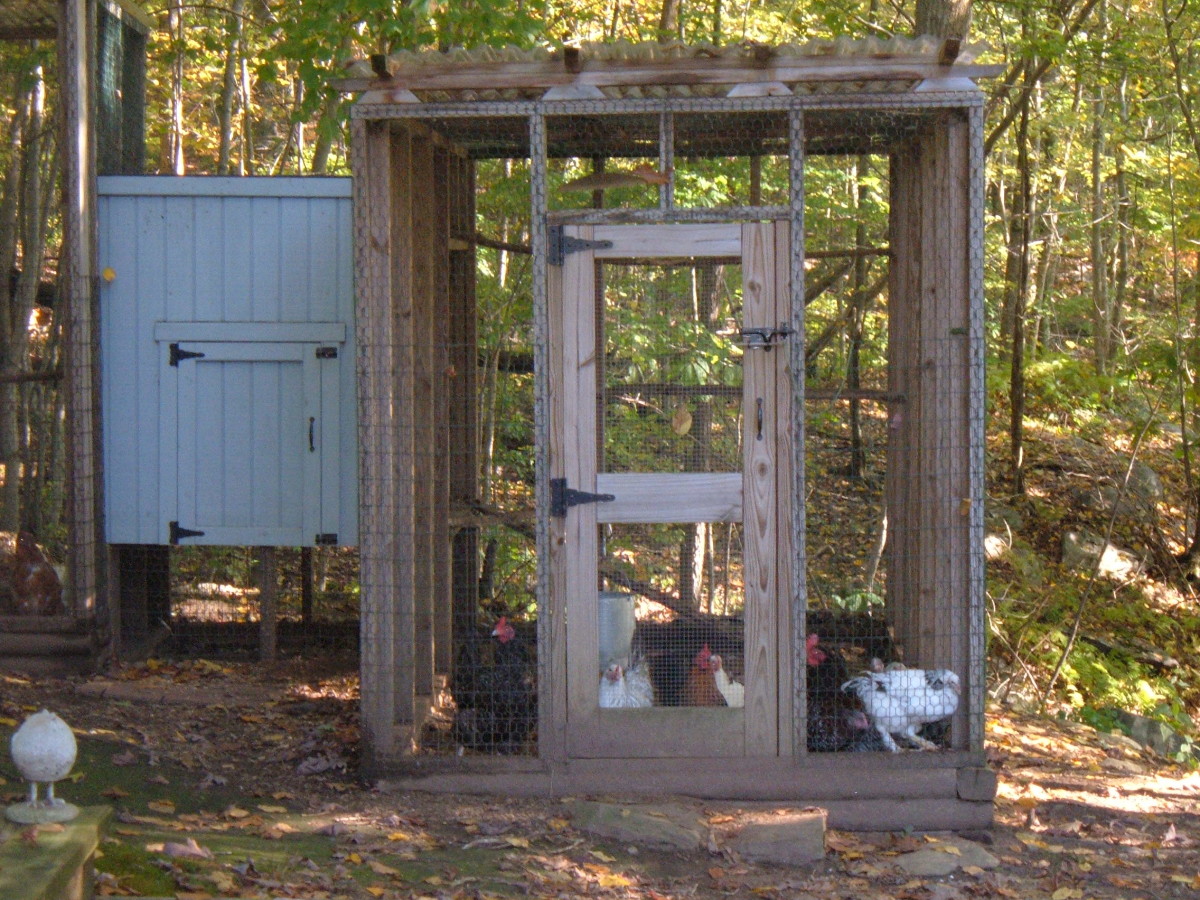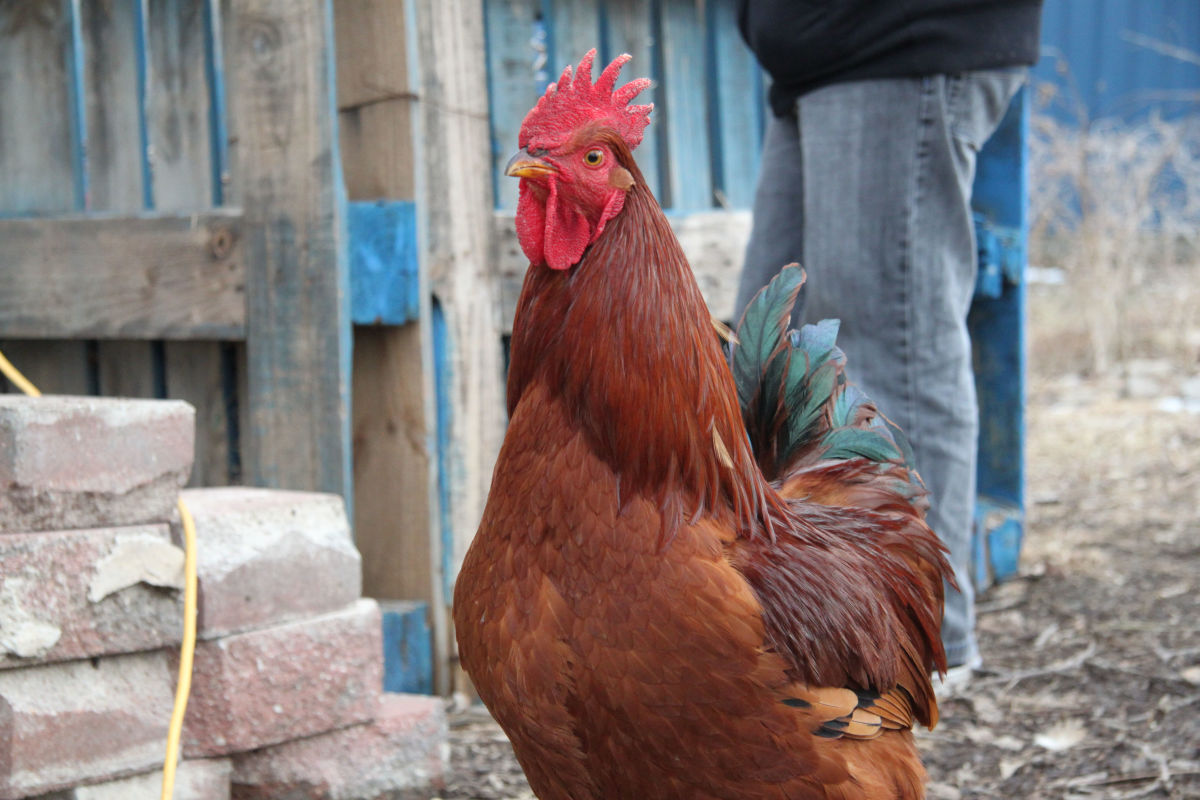Raising Guinea Fowl
Guinea fowl are an excellent solution if you are tired of ticks invading your farm or have a problem with Japanese beetles or wasps. Guinea fowl happily munch on insects and seeds on your property, and it is a way to deal with these troublesome pests without using chemicals. They are low maintenance during the summer months and can be made comfortable in a barn or enclosed building during the colder months. If you have several acres or more, these birds offer an interesting and colorful solution to your bug and insect problem.







Raising Keets
Depending upon where you live, guinea fowl may be available locally or you may need to purchase them online. You are often given a choice of buying eggs to hatch or receiving day-old birds, which are called keets. (Guinea fowl come in a wide variety of colors- so don't think they only come in the familiar Pearl Gray color!) If you’ve never hatched eggs before, it may be advisable to go with the live keets the first time you attempt raising them.
The keets need a warm and dry place to live when starting out. It should also be a predator-proof enclosure because rats, weasels, cats and other predators find them tasty. I’ve found that hardware cloth is sturdier and more difficult for these predators to get through instead of chicken wire. Once the keets have matured with feathers, they’ll have few, if any, predators to worry about.
Keets need to be given warm water - never cold. You can use a chick waterer, however place marbles or pebbles in the bottom of the waterer, otherwise these little birds (unlike chicks) may drown themselves.
Keats are very active, more so than baby chicks. They need a high protein feed; it should have 24-26 percent protein for their first month. For the second month, the feed should have 18-20 percent protein - chicken feed intended for broilers will usually fit the bill. Finally, from the third month on the guineas can be fed a feed chicken layer mash, which usually has around 16 percent protein in it. Don’t bother feeding guineas pelleted feed or whole grain corn - they’ll usually ignore it. They do, however, enjoy crushed millet if it is available at your feed store.
Sexing Guinea Fowl
Guinea fowl look very similar as keets. One of the easiest ways to find out which are hens, and which are roosters, are to wait until they start making their familiar call. It sounds something like “buckwheat”. Roosters don’t make this call. The roosters are also a little taller than the guinea hens once they’ve feathered out.
Raising Guinea Hens and Roosters
Once your keets have feathered out, they’re ready to strike out on their own on your property. They will stay together in a group and forage wherever the bugs and seeds are plentiful. To get them to stay in a particular area, offer them feed there each evening. They will even go into an enclosure to be locked up for the night if you train them to do so. Otherwise, in the summer months you may find that your birds are wandering all over your property, which may only become a problem if they start visiting neighbors.
Guineas are very fast runners, which helps them to easily outrun many predators. In addition, they are excellent fliers and can fly 400-500 feet at a time. Don’t be surprised if they fly onto the roof of small buildings or your front porch - they may be there looking for wasp insects, which like to make their nests in these areas.
Guinea Eggs and Meat
While guinea hens aren’t usually raised for their eggs, they often are raised for the meat. The eggs they lay are usually hard to find, since the guineas like to lay their eggs in hedgerows and weedy, high-grass areas. Their eggs are small (two guinea eggs approximately equal one chicken egg), and have hard shells. More than one guinea hen may lay her eggs in a nest, and if you have a broody hen, allow her to raise the keets herself. It is much easier than separating them out and raising them yourself.
Some guinea hens and roosters are raised for their meat. They have all dark meat, which has a game bird flavor. Many restaurants offer guinea hens in place of quail or pheasant since they have similar flavors. Since these birds are fast on their feet and quick to fly if even slightly frightened, raise any guinea hens or roosters that you intend to eat in an enclosure, otherwise you may never catch them.
Guinea Fowl Resources
- Guinea Fowl
- Common Poultry Diseases
A list of symptoms and diseases for poultry, including those affecting guineas. - Guinea Fowl, Ticks and Lyme Disease
Raising Guinea Fowl for Lyme Disease Control - Farming Friends Guinea Fowl
- Guinea Fowl Management

